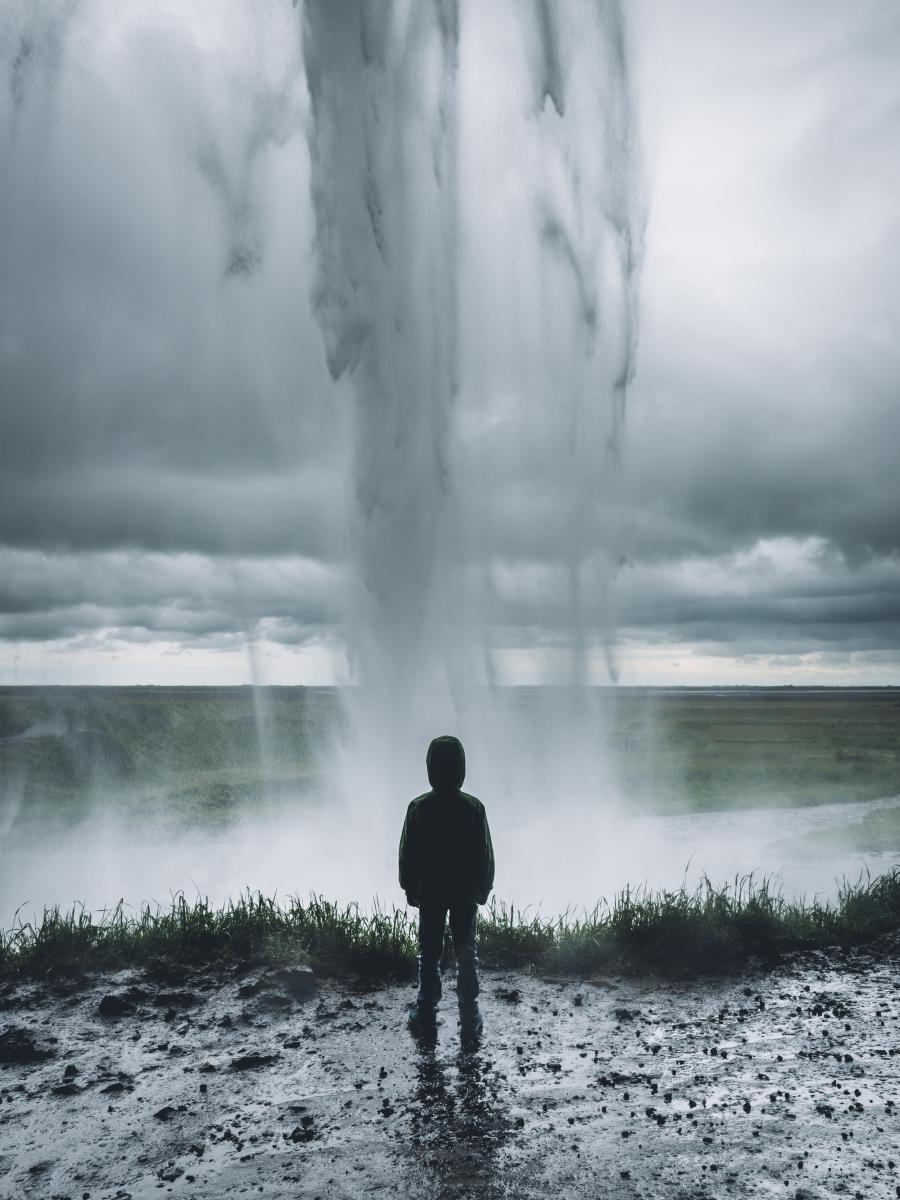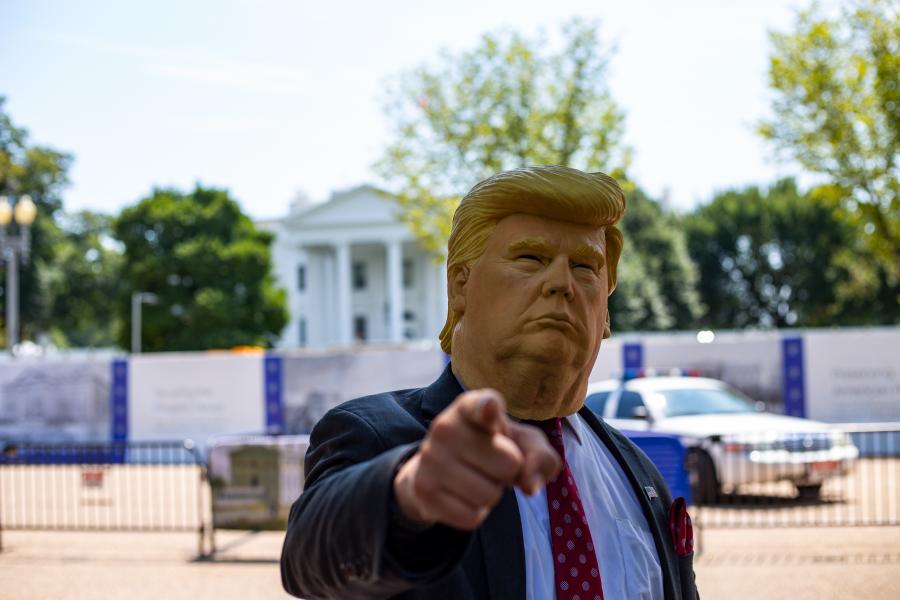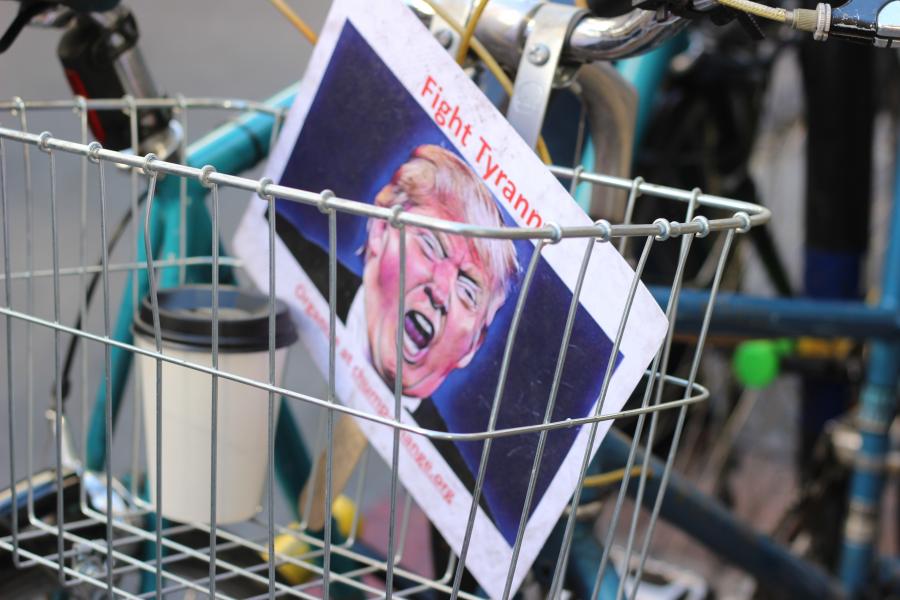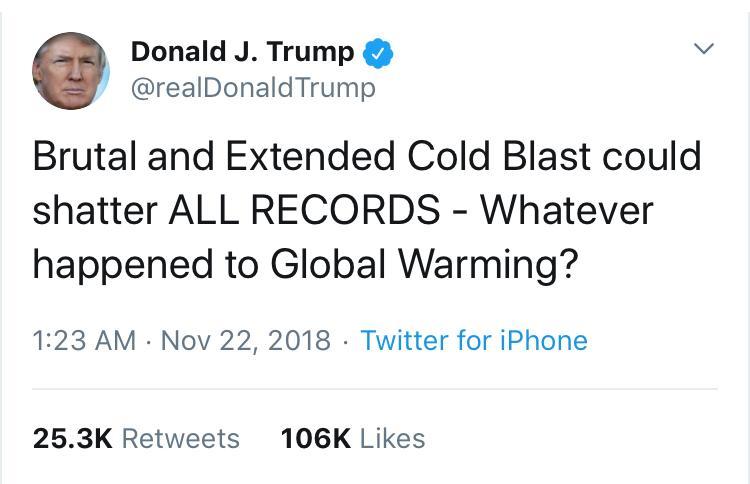
The Climate Will Deny You If You Keep Denying Climate Change
Deny Climate Change But The Changing Climate Might Deny You To Keep Living
Have you ever wondered what the core beliefs of a climate denier are? Or what influences their beliefs that are constantly reassuring their thoughts that in turn strengthen their denial towards the contemporary occurring ecological crisis?
Me, too. I have definitely wondered a couple of times how in this day and age of time, especially with most climate change deniers being able to access the internet, people can still not believe something that is so evident as global warming.
"I am an environmentalist. A lot of people don't understand that. I think I know more about the environment than most people." - Donald Trump (2019, G-7 Climate Meeting)
The focus of this article will be specifically on Donald Trump’s constant references that climate change is a hoax, and thus, isn't real. His supporters seem to believe him, even though there is a staggering amount of scientific evidence that climate change is far from being a hoax, but something which is really happening now. Something that is already affecting the lives of so many and is endangering whole continents and species.

Climate change denial is so ubiquitous, that there is a bit of a climate change denier in all of us. This is how it relates to all of us, it comes in different disguises. The shades of climate change denial appear interestingly in three different stages, which include literal denial, interpretive denial, and implicatory denial. The transition between them is rather blurred.
Through these shades of climate denial, presented with examples of Trump and his supporters, we will see at the end whether one of us is truly a climate change denier. Because if we continue to deny climate change, it will eventually deny us to continue living on this earth. Hopefully, this article will bring somewhat of clarity and help us improve so that we can save Mother Earth eventually.
The Shades Of Climate Change Denial: It Is In All Of Us
Simply put, climate change denial is an act in which a person makes the conscious choice to refuse the staggering amount of evidence that proves that humanity is at this point in a serious ecological crisis, which is endangering life on the planet. Greta Thunberg, Birthstrikes, and Extention Rebellions are just a few of the groups around the world that are trying to raise awareness around this particular subject of climate change. Sadly enough, there is still a vast amount of misconception fueled by world leaders such as the 45th President of the United States, Donald Trump.
“Ice storm rolls from Texas to Tennessee - I’m in Los Angeles and it’s freezing. Global warming is a total, and very expensive, hoax!” — Donald Trump (2013, Twitter/X)
The great success that allows for the continued disregard of scientific consensus over man-made global warming in the USA is steadily increasing (Collomb, 2014). Particularly, it is gaining significant momentum due to the general public’s core beliefs in a thriving corporate America that is dependent upon its support for fossil fuel industries. Consequently, the US government is continuously prevented from making policies or regulations that would protect the climate. A powerful opponent is Mr. Trump, who is outright opposing the idea that there is any global warming going on.

In order to understand the tactics that grant this behaviour of denial, it is vital to use the shades of climate change denial. It is also important, nevertheless, to acknowledge the fact that all of us have denied climate change at least once. In other words, it means that there are inactions and the act of denying climate change which is labelled as a twin phenomenon, and has categorized climate change deniers into three different stages and concludes this as the shades of climate change denial (Cohen, 2001).
For example, the literal denial is someone who simply, consciously and outright rejects the idea of climate change. This is done by absolutely disregarding the fact that climate change has happened and is happening, which is also referred to in the modern-day English language as - lying. This occurred when Trump was asked about the fourth National Climate Assessment (NCA) in front of 13 government agencies and more than a hundred climate scientists. His answer was as plain as his triumphant-tweeting-based governance, in which he declared just this: "I don’t believe in it". The answer conveys all the criteria of a literal denial that is simple, conscious and outright rejection.
“Nothing’s a hoax about that. It’s a very serious subject. I’m a big believer in that word, the environment.” — Donald Trump (2016, Book/ An Environmental Hero)
Another case, referred to as the second stage of the shades of climate denial is the interpretive denial. This illustrates a denier that does not contest facts but instead distorts their meaning. If we look now again at the classic climate denier, aka Donald Trump, another example can be found where he was successful in completely distorting the facts in front of a crowd of people.
That is this significant moment allowed for science and Trumpism-logics to meet face-to-face, a peer-to-peer interaction, but he was still successful in completely distorting the facts in front of a crowd of people. This happened when reporters asked Trump about his previous comment in which he declared that he does not believe in climate change. He distorted his second answer by claiming that other countries need to cut their emission output because the report by NCA only addressed the USA.
He went further and even claimed that the US is "the cleanest we’ve ever been" and concludes with "but if we’re clean but every other place on earth is dirty, that’s not so good". As this example illustrates, the interpretive denial of climate change has been manifested by distorting facts and not outright rejecting them as in the literal denial phase.

The third stage of the shades of climate denial, third stage, is implicatory denial, where the psychological, political and moral implications are denied and minimized. The conditions are embedded in an outraged comment by Trump found in a report by BBC and another one in one of his famous tweets.
During a Fox News interview, President Trump admitted that he truly believes that climate change scientists have a political agenda, and he is, therefore, hesitant to trust the idea that it is us humans responsible for the earth’s rising temperatures. This is an absolute minimization or a complete denial of the psychological and moral implications that associate an individual to man-made global warming.
Of course, this does not stop there. President Trump is extremely famous for tweeting his thoughts, feelings, and opinions. Presumptuously, he announced to prove that also climate change was on his mind so in 2018 he decided to tweet about it. The tweet entails the fact that there is a "brutal and extended cold blast" which is to overturn all records, it is to squash the evidence about the scientific evidence about the ecological crisis. He concludes by questioning the existence of global warming at the end. This example illustrates the implicatory denial by minimizing or denying the political implications of climate change.

So Where Do We Go From Here?
Words and actions of a world- leader have immense consequences implying wide complications on the climate agenda. This fetal act by Trump does not only affect the US government but will in fact influence the entire world. The twin phenomena of inaction and denial demonstrate that we are all not immune to being climate change deniers. The protests organized by Grea Thunberg all over the world, do help by raising awareness and forcing many to get involved. But is that truly enough to save the earth?
Stop climate change denial otherwise the climate will deny you.
References
BBC. (2018, November 24). Climate change: Report warns of growing impact on US life. Retrieved December 27, 2019.
BBC. (2018, November 26). Trump on climate change report: ‘I don't believe it’. Retrieved December 27, 2019.
Cohen, J. (2001) Defining Identification: A Theoretical Look at the Identification of Audiences With Media Characters, Mass Communication and Society. Retrieved December 19, 2019.
Collomb, J.D. (2014, April 1) The Ideology of Climate Change Denial in the United States, European journal of American studies. Retrieved December 22, 2019.
Malo, S. (2018, February 21). “Trump Forest” hits a million trees in bid to curb climate change. Retrieved November 21, 2019.
Nuccitelli, D. (2018, December 5). Trump’s disbelief won't stop dangerous climate change. Retrieved December 26, 2019.
Thomson Reuters Foundation News. Trump and climate change. Retrieved November 9, 2019.
Walker I. & Leviston Z. (2019, October 15). There are three types of climate change denier -and most of us are at least one. Retrieved November 20, 2019.